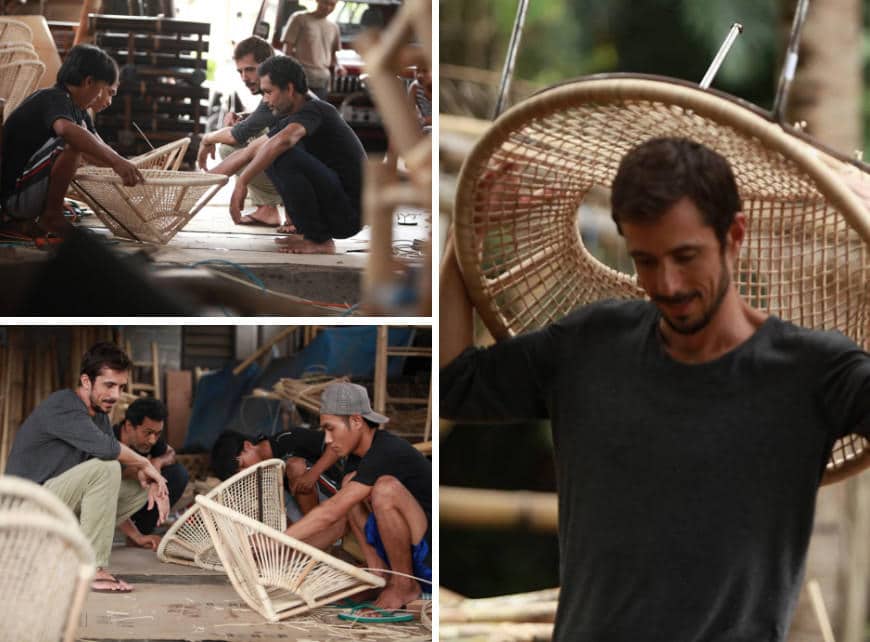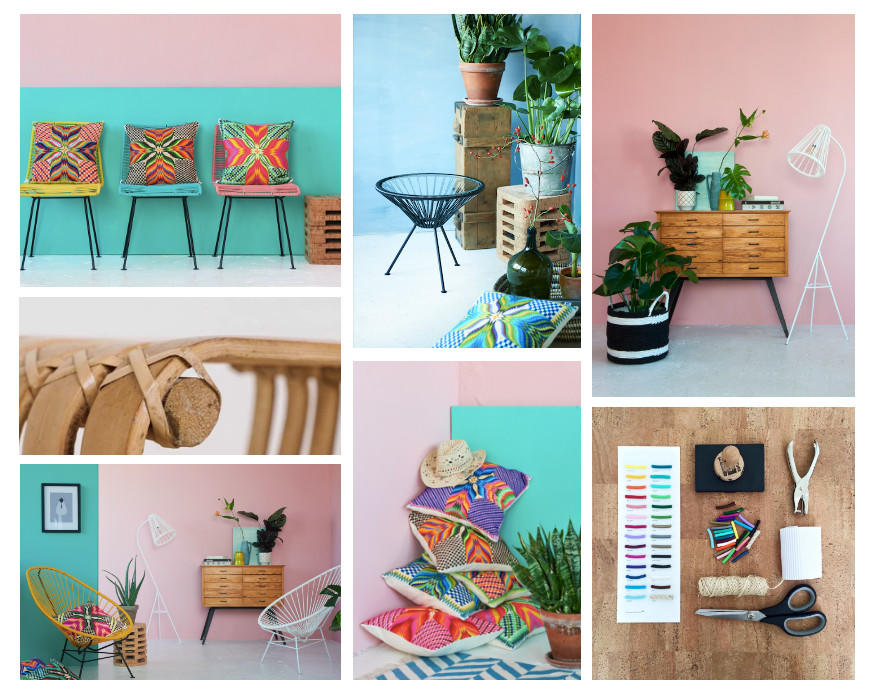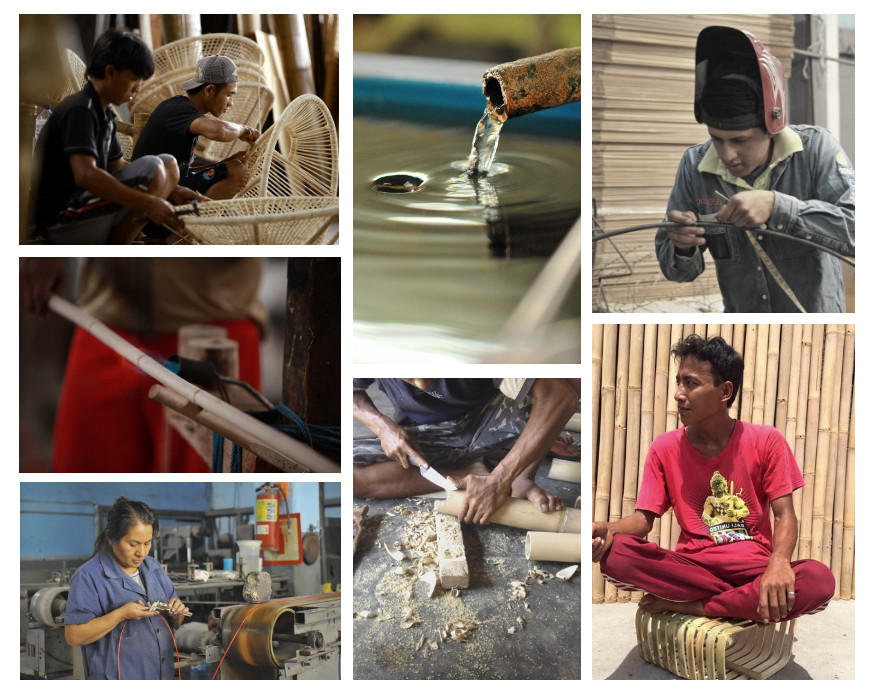Honest and sustainable products – that is what Fair Furniture’s collection stands for. And because Biano believes it is important that sustainable products get a stage, we have asked Joris van Balkom – the founder of Fair Furniture – the ins and outs of everything!
Love for sustainable products
From an early age, Joris had a strong interest in nature and different cultures. Therefore, his decision to study Tropical Forestry & Nature Management at the University of Applied Sciences did not come as a surprise. During his studies he learned about the sustainable use of natural resources. His love for sustainable design was sparked when he first came into contact with the Acapulco chair in Mexico – a comfy chair that was a true style icon in the 1950s. In 2012 Joris quit his job with the aim to breathe new life into the handmade Acapulco chair. Three years later – after a successful kick-off – Fair Furniture’s collection has been expanded with their own sustainable and natural interior collection. We spoke to Joris about all the ins and outs of Fair Furniture, while he is busy working in Bali on the redesign of the Ubud Chair.

1. During your studies you learned all about the sustainable use of natural resources. Do you feel that the general environmental awareness in the Netherlands has changed in the recent years?
“Yes, I have noticed some changes and in general I believe consciousness is increasing, but I wonder whether we always focus on the right thing. There are now many more ‘sustainable’ products offered than a few years ago, but I actually believe it is important that we consume less – which may sound crazy coming from a furniture producer. Maybe I am even acting against my own interests by expressing this opinion, but I really think the world would be a better place if we would use our things longer instead of throwing them away or replacing them too soon. When creating new furniture, we therefore strive to produce the items that are going to stay in good condition as long as possible so that you can enjoy them for a long time.”
2. Why is sustainable design important to you?
“It is especially important to me to develop products (..) that are of high quality and therefore have a long lifespan. With sustainable design, I mainly think of smart design. A great example of that are our Ubud Chairs made in Bali. In order to make these beautiful chairs we only make use of two materials and we produce almost no waste in the process. Moreover, the chairs are of such high quality that they last for years. This same ‘smart design’ is what makes me so enthusiastic about our Acapulco chairs as well. We create virtually no waste during production and the quality of the chairs is remarkably high: the PVC we use is a-toxic, free of phthalates and in addition to that because our PVC is UV-resistant, the chairs can remain outside in the sun (and rain) for years. This is what differs our Acapulco chairs from other designs and replicas on the market.”

3. Your products are created in a ‘pleasant environment’ in countries such as Mexico and Indonesia. What kind of working conditions do you find important?
“We find working conditions in general very important, but the most important thing for us is the atmosphere – and we find it paramount that people enjoy their work. A decent salary certainly plays a role in that. For example, I regularly visit the workshop in Mexico: the mutual atmosphere and the relationship with the management is very amicable. A meeting with the craftsmen in Bali is sometimes more difficult to plan, because they often spend longer periods of time away after having earned some money, in order to spend time with their family. They then spend the money on education and on the improvement of their overall living conditions and it is amazing to see that we contribute to that.”
4. The artisans behind the products know you personally. Can you give me an idea of the living conditions of these craftsmen?
“In Mexico, most craftsmen are actually women from the area close to the workshop, who have been working with us for several years which we are proud of. In Bali, the craftsmen we work with are mainly local Balinese craftsmen or young men from Java, each with their own specialty. The craftsmen from Java often have more experience with rattan, while the Balinese craftsmen are more experienced with bamboo. Their living conditions are quite simple and some even sleep in the workshop. After working for a few weeks they often leave with the earned money for a longer period of time to be with their families, where they invest in the education of their children and the improvement of their living conditions.’’

5. You prefer sustainable natural materials with a long lifespan. Which materials are pre-eminently sustainable and why?
“As I see it, the PVC that we use is perhaps the most sustainable, because of its high quality and longevity. Of the natural materials – which we increasingly use – I give preference to bamboo. Bamboo grows on the spot in Bali. And that is why our ecological footprint when using bamboo is the lowest of all the materials we use. In addition to that, bamboo is very strong and resistant to intensive use, so it stays beautiful for a long time.’’
6. And last but not least: Which Fair Furniture furniture do you have in your own house?
“In my house in the Netherlands I have Polanco chairs at my dining table and I have a couple of Acapulco chairs, both in the house as well as on my terrace. I’m currently renting a house in Canggu, Bali with my girlfriend, and there we have a couple of rattan Ubud chairs and several bamboo bar stools.’’
